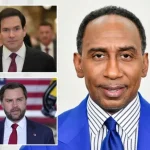
House Speaker Nancy Pelosi’s decision to go through with a visit to Taiwan may have been a way to project strength to the Chinese. Aside from that, it’s difficult to see any tangible benefit from what amounted to a political stunt.
There have been plenty of tangible harms, however — and one of them could end with too many Americans dead.
According to Reuters, officials in President Joe Biden’s administration are slamming Beijing for suspending cooperation on drug trafficking matters — including the trafficking of fentanyl, much of which originates in China.
In an Aug. 8 statement, Rahul Gupta, director of the White House Office of National Drug Control Policy, said China’s actions are disappointing in light of a drug problem that killed more than 100,000 Americans last year, according to Reuters.
Fentanyl and its analogs have been banned in China since 2019, but it remains one of the key sources of the drug that’s supercharged the overdose epidemic in the U.S.
“At a time when illicit fentanyl continues to claim a life every five minutes, it’s unacceptable that the PRC (People’s Republic of China) is withholding cooperation that would help to bring to justice individuals who traffic these illicit drugs and who engage in this global criminal enterprise,” a statement from Gupta read.
“China has played and must play a key role in helping disrupt the illicit flow of drugs like fentanyl and their precursor chemicals,” he added.
In August 2021, according to a Reuters report from the time, a congressional advisory panel said poor cooperation from the Chinese government had impeded efforts to slow fentanyl trafficking to the United States.
Among other things, the panel found, regulatory authorities in China often sit on requests to investigate alleged sites where precursor chemicals are being manufactured, Reuters reported.
Do you blame Chine for the U.S. fentanyl crisis?
Yes: 63% (5 Votes)
No: 37% (3 Votes)
“Requests are often delayed for days, allowing any illegal operation to vacate or clean up the premises,” the U.S.-China Economic and Security Review Commission said in its report, according to Reuters.
At the time, China’s foreign ministry was defiant: “The U.S. cannot harm China’s interests while expecting China to cooperate unconditionally,” it said in a statement, according to Reuters.
However, Reuters reported last week that Biden had talked about the issue with Chinese President Xi Jinping during a July phone call and that the two leaders had directed their staffs to do follow-up work.
That cooperation has now been suspended — and, according to a statement issued in China’s state-run media, Beijing is putting the blame explicitly on the U.S. government.
“In disregard of China’s stern warning and repeated representations, U.S. House Speaker Nancy Pelosi insisted on her provocative visit to China’s Taiwan region, which seriously undermined the political foundation of China-U.S. relations,” said Chinese foreign ministry spokesman Wang Wenbin, according to CCP-run news agency Xinhua.
“As for the fentanyl abuse in the United States, I’d like to say that first, the root of the crisis lies in the U.S.,” he said.
“Second, China has made great efforts to help the United States solve the fentanyl problem.”
Now, as with most things out of China’s state-run propaganda mills, this is grade-A fiction:
Taiwan is still a country, with its own government, military and an economy that’s ranked sixth freest in the world, according to the Heritage Foundation. (The United States is ranked 25th on the same scale. China is No. 158.)
The root of the fentanyl crisis still lies in China and Beijing’s efforts to stop it have been desultory at best.
Still, the power of Pelosi’s office comes with responsibility, too.
To be clear, no United States administration or government officials should ever appease Beijing to get the Chinese government to take its role in interdicting drug traffickers seriously. American leaders capitulating on the “One China” policy — or any other major policy issue, for that matter — shouldn’t be a precondition for the Chinese government to enforce the law.
With that said, however, we know certain actions provoke certain — utterly predictable — reactions from China. And in that light, those actions need to be looked at with cost-benefit analysis in mind.
Pelosi’s trip has done little substantively for our ally Taiwan — other than to reaassure the island nation’s government that if senescent, politically vulnerable leaders of the lower chamber of the U.S. Congress are ever up against stiff electoral headwinds before the midterms, they will absolutely, totally, 100 percent go through with their visit even if mainland China makes empty threats to shoot their plane down.
You’re welcome, Taipei.
Meanwhile, the tangible effects of the trip could end up killing plenty of people in the United States thanks to a breakdown in enforcing drug trafficking protocols. With more than 100,000 Americans dead of drug overdoses last year, it’s not hard to imagine thousands more dying as a direct result of China’s response to the Pelosi visit.
That’s not a minor sacrifice, even in the short term — not when bodies are piling up in the midst of a deadly drug epidemic. For those who lose loved ones to fentanyl, they ought to ask Nancy Pelosi whether her political stunt was all worth it.






